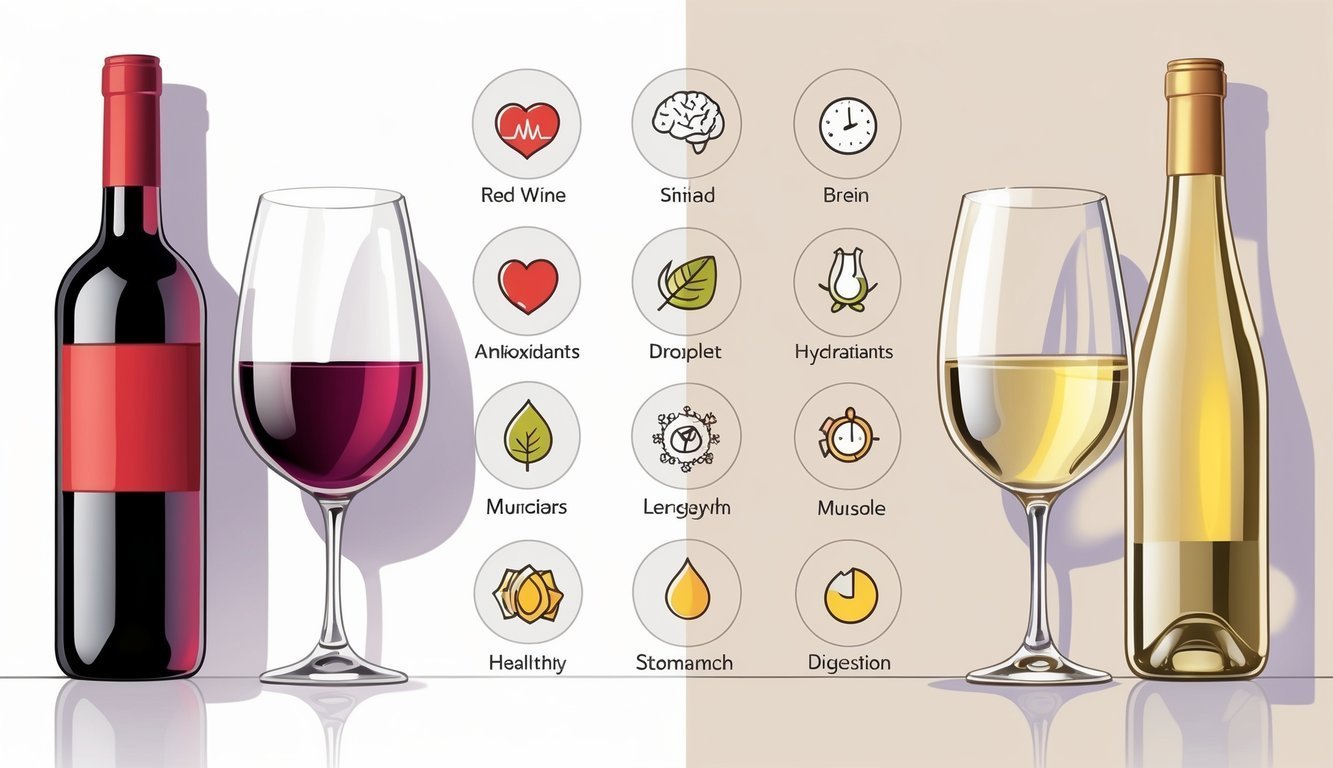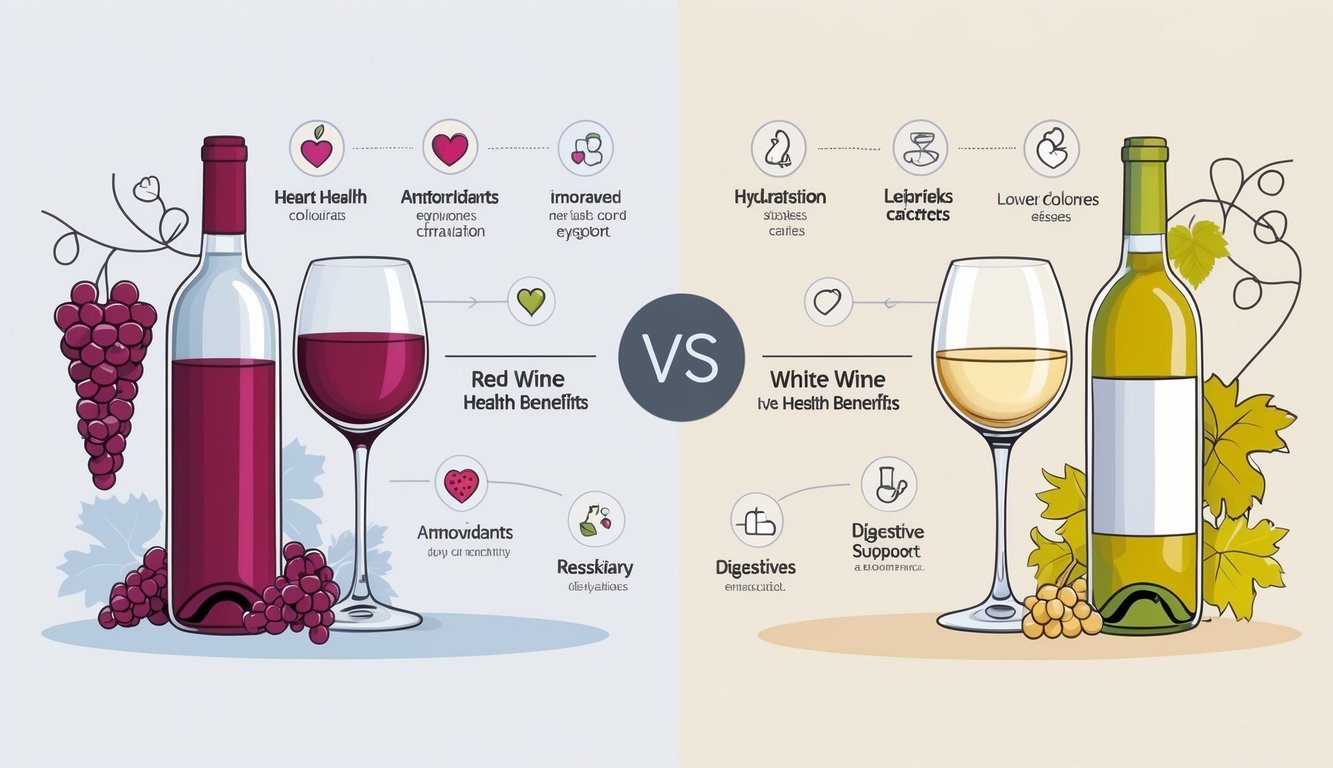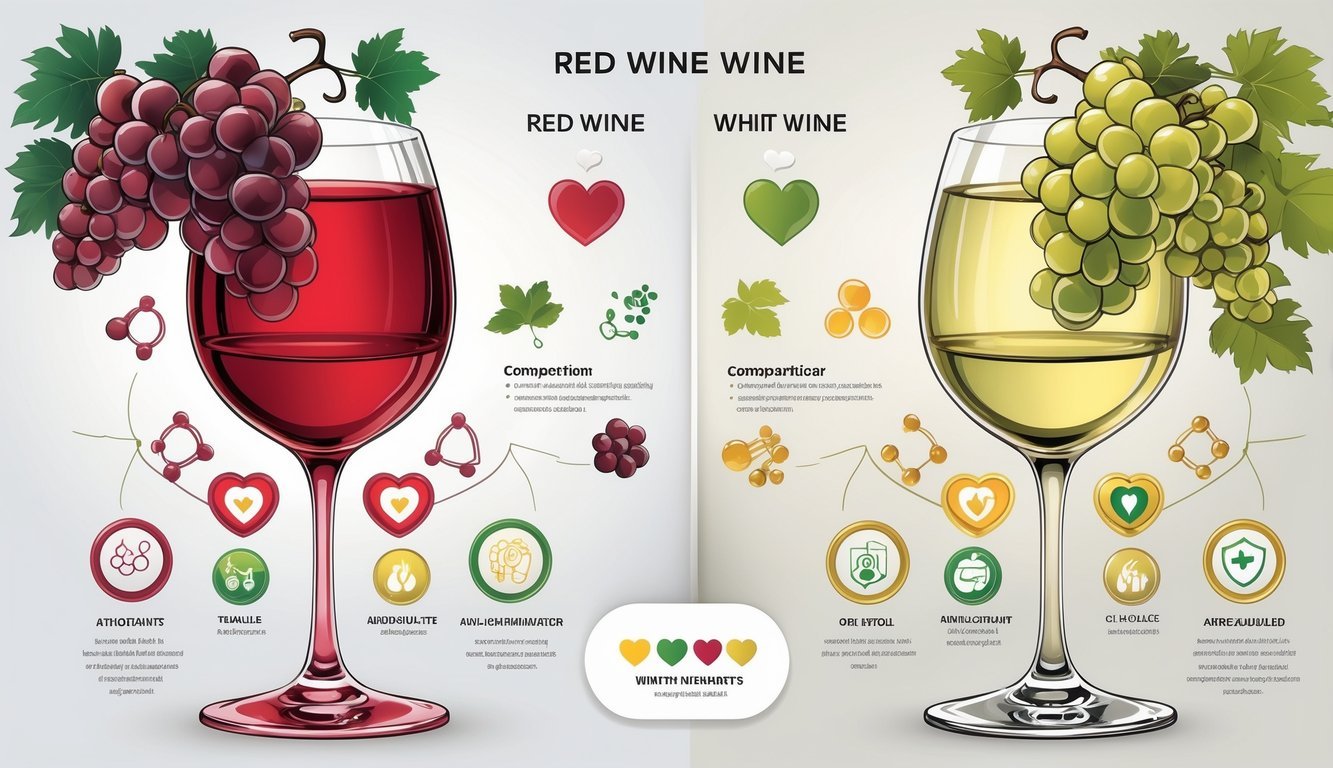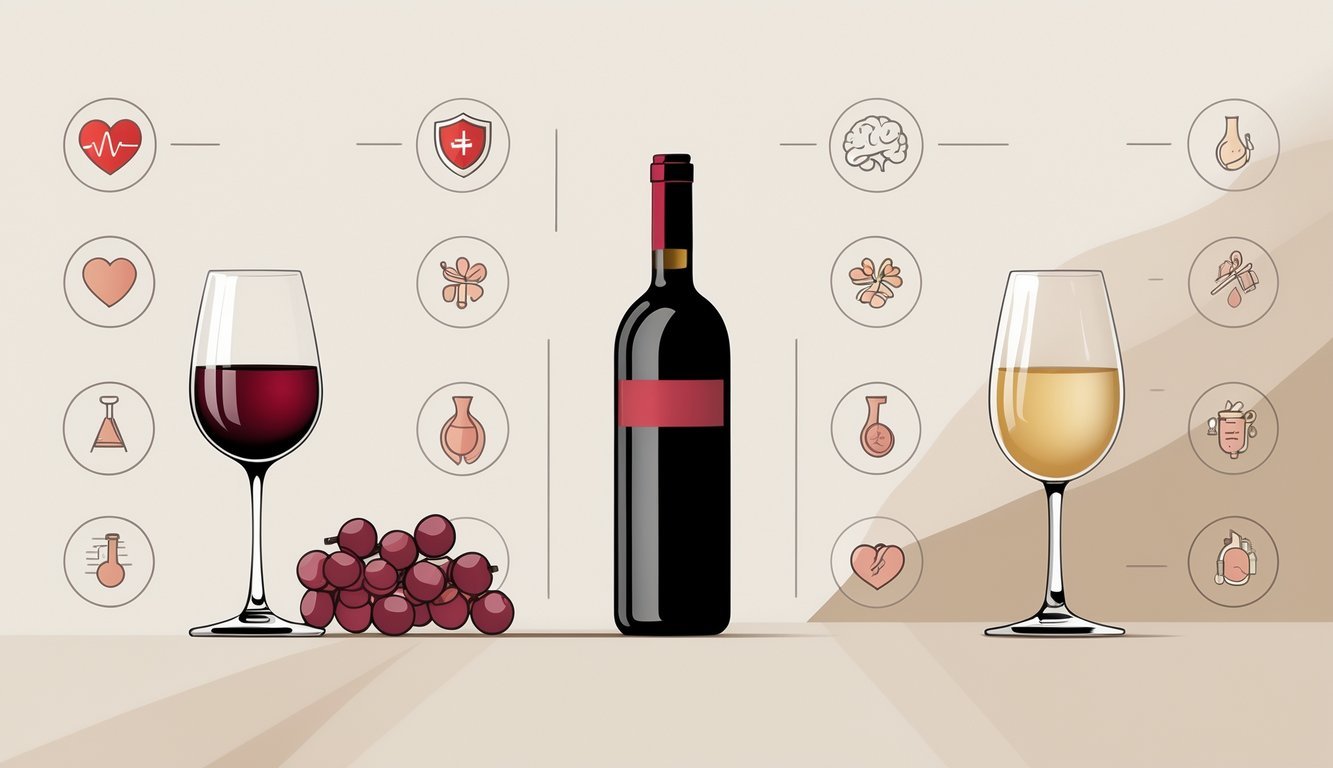PsychNewsDaily Publishers
100 Summit Drive
Burlington, MA, 01803
Telephone: (320) 349-2484
PsychNewsDaily Publishers
100 Summit Drive
Burlington, MA, 01803
Telephone: (320) 349-2484
Red wine contains more antioxidants and polyphenols than white wine, promoting heart health and reducing disease risk, while moderation is crucial for maximizing benefits.

When you’re picking between red wine and white wine, do you ever wonder which is actually better for your health? Red wine usually comes out ahead—mostly because it packs more antioxidants, which can help lower bad cholesterol and support your heart.
White wine does have its perks, but red wine’s natural compounds really make it the stronger contender for wellness.
Both wines start with grapes, but here’s the twist: red wine is made with the grape skins, where most of the good-for-you antioxidants live. That simple step gives red wine some vitamins and minerals you won’t find in white.
If you know what goes into your wine, you’ll make smarter choices for your health goals.
How wine is made and what’s in it can really matter when you think about the effects. Your habits and how much you pour in your glass also play a big part in what you get out of it.
Let’s get into nine key health benefits that separate red and white wine.

Red wine and white wine aren’t created equal when it comes to natural compounds and their effects on your body. Red wine usually has more antioxidants and polyphenols. That difference can affect your heart, disease risk, and maybe even how long you live.
Red wine brings more polyphenols to the table—plant-based compounds that act as antioxidants. You’ll find resveratrol, anthocyanins, quercetin, and catechins in there.
These antioxidants fight free radicals in your body, cutting down on oxidative stress and cell damage.
White wine doesn’t get as many polyphenols, since winemakers use green grapes and skip most of the skin contact during fermentation. So, it ends up with lower antioxidant levels.
Because of these compounds, red wine can give you more protection against cell damage and inflammation. Those are big deals when it comes to aging and chronic diseases.
If you keep your drinking moderate, you can enjoy these perks without running into trouble.
Red wine has a reputation for being good for your heart. It can boost your HDL (good) cholesterol and lower LDL (bad) cholesterol. That balance helps stop plaque from building up in your arteries, which lowers your risk of atherosclerosis, heart disease, and stroke.
Red wine also helps blood flow by increasing nitric oxide. That relaxes your blood vessels and can bring your blood pressure down.
It may even help prevent blood clots by reducing platelet aggregation, so it’s a win for heart attack and stroke prevention.
White wine gives you some heart benefits, but not as many as red. If you’re aiming for better heart health, red wine is the front-runner.
Red wine’s higher polyphenol content links to lower risks of certain diseases. That includes type 2 diabetes, Parkinson’s, and some cancers like breast cancer.
These compounds work to reduce inflammation and oxidative stress, which play a role in these illnesses.
Some clinical trials say that moderate red wine drinking could improve biomarkers tied to chronic disease and maybe even help you live longer.
White wine falls short here, mostly because it has fewer antioxidants.
Still, moderation matters. Too much wine can raise your risk of health problems, including heart failure and cancer.
Your family history and current health should guide your choices.

What’s in your wine—and how much you drink—plays a huge role in your health. The grape type, wine-making process, and alcohol content all matter for both benefits and risks.
Knowing these details can help you pick what’s best for you.
Wine contains ethanol, the alcohol that affects your body. Most wines clock in between 11% and 15% ABV, but that varies by type and brand.
Red wines like Cabernet Sauvignon or Pinot Noir usually have a bit more alcohol than whites like Chardonnay.
Moderation is everything. For most people, that’s no more than one glass a day for women and two for men.
Go overboard, and you risk problems like depression or inflammation.
Your body handles alcohol differently based on your weight, age, and health. Drinking slowly and eating beforehand can help you avoid negative effects.
If you’re pregnant, skip the wine entirely—it’s just not worth the risk.
Most wine comes from Vitis vinifera grapes, but each variety brings its own flavor and chemistry.
Red wines get their color from fermenting juice with the grape skins, adding tannins and polyphenols like resveratrol. These are linked to less inflammation.
White wines mostly skip the skins, so they end up with fewer tannins and antioxidants.
Sparkling and orange wines use different methods, but they’re usually closer to white wine in what they offer.
How long the wine ferments, how it’s aged, and even the barrel used can change the nutrients and flavor. These factors affect how much anti-inflammatory benefit or vitamins like B6 and potassium you get.
Wine isn’t for everyone. If you have liver disease or a history of depression, even moderate drinking can cause harm.
Alcohol can also interact with medications or make some health conditions worse.
Some people use wine as a supplement for heart or brain health, but honestly, it’s risky to rely on it without talking to a doctor.
If you’re thinking about drinking wine to fight inflammation or improve your quality of life, tread carefully.
Risks include higher cancer chances or addiction. Always weigh your personal risks before adding wine to your routine.

Red wine usually wins on antioxidants and heart benefits. White wine is lighter in calories and might affect your weight differently.
How each wine affects your liver, gut, or women’s health depends on several things.
Red wine has more antioxidants, thanks to compounds from grape skins. These can help protect your cells from damage.
White wine offers fewer antioxidants, but it’s usually lower in calories.
White wine tends to have fewer calories than red. If you’re watching calories, white wine might be better for weight management.
Just remember, moderation is key for any weight loss plan.
Red wine is often considered better for your heart. It can raise good cholesterol (HDL) and lower bad cholesterol (LDL).
White wine doesn’t have as strong an effect, but it can still offer some mild heart benefits.
Both red and white wine can harm your liver if you drink too much. Neither one is safer in large amounts.
Stick to moderation, no matter your choice.
Red wine has more polyphenols, which may help boost good gut bacteria. White wine doesn’t have as many of these compounds.
Still, wine’s effect on your gut depends a lot on your overall diet.
Red wine packs antioxidants that might help protect women’s heart health. Still, it’s important to remember that both red and white wine can affect hormone levels and other aspects of health.
Drinking either kind in moderation is key. Too much alcohol isn’t great for anyone, honestly.